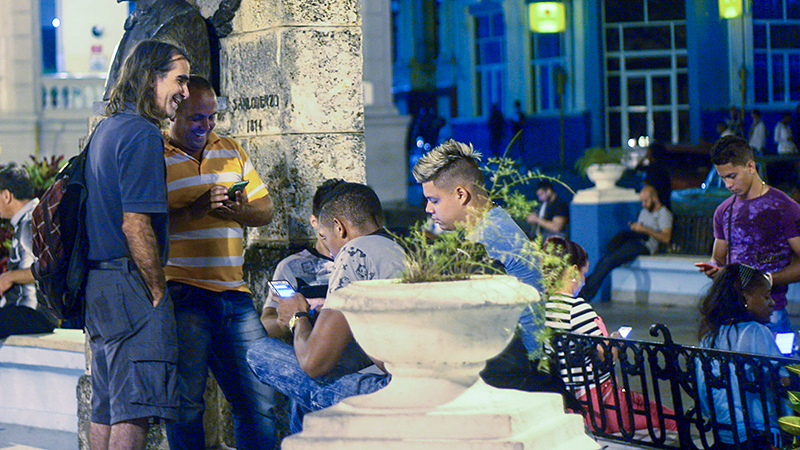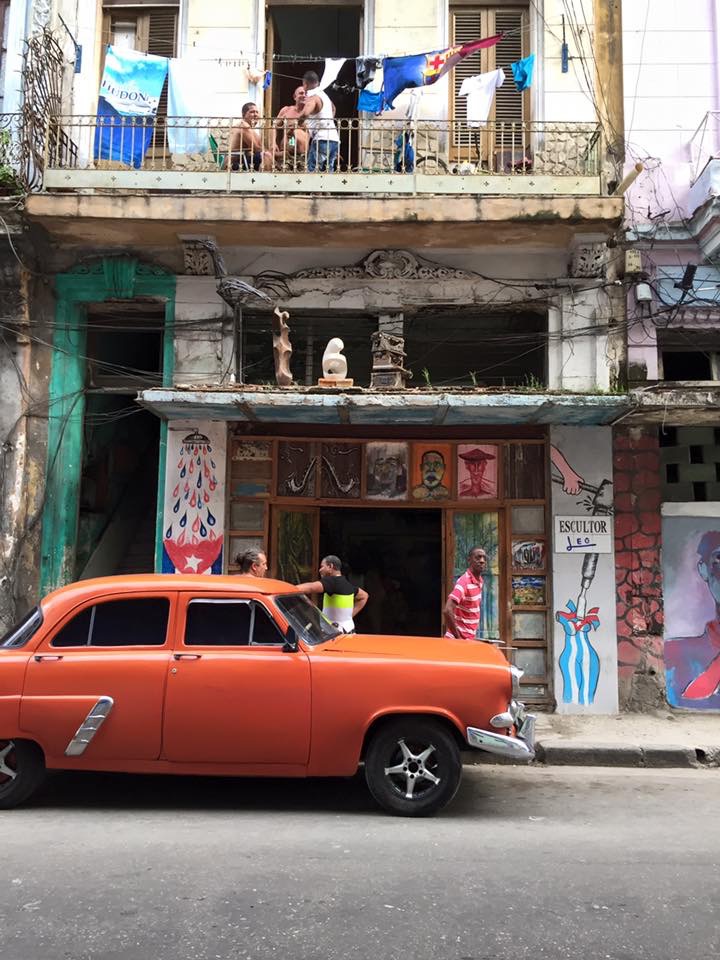I've tucked into an alleyway in Old Havana looking for shelter from a downpour, content to wait out the storm under a crumbling balcony. No point checking my phone. Data is both extremely slow and very expensive in Cuba. As I wait, something catches my eye: a placard for a store selling phone cards. Cuba has the lowest Internet penetration of any country in the Western Hemisphere, and I have been looking for something called el Paquete Semanal, or "the Weekly Package." The Package provides a hand-curated collection of thousands of movies, YouTube videos, magazines and songs every week for the equivalent of one dollar, all downloadable from a memory stick. I realize this store might be where I finally find the Package.
I walk down the alley, away from the brightly coloured façades of touristy Obispo Street and deeper into a warren of apartments made from cement blocks and rusty sheet metal. I find the store, a little shop in a living room, where a woman is working a dusty '90s-era Dell computer, printing jobs from USB sticks and selling phone cards. This is very exciting. I know the Package comes on USB flash drives. Maybe this woman is a distributor.
I've had a fascination with Cuba since I was a student in the United States. Ten years since my first visit, I've come back as a Canadian academic to research how a burgeoning, but underground, Internet is changing Cuban society. I'm also laying the groundwork for a spring course on Cuban myths and realities for U of A students in spring 2018.
I feel nervous asking the woman about the Package. None of her clients mentions it as I lurk around. The Package is classified as "alegal." Not necessarily illegal, but not legal, either. Unlegal. Frustrated, I abandon the shop. If the Package can't be found in a shop run by a tech-savvy young woman a dark alley in the middle of Havana, I guess I will never find it.
A few days later, on the other end of the island in Santiago, I take a chance asking about the Package. This time, I ask a young academic from the Universidad de Oriente in Santiago de Cuba. "You want to see el Paquete?" he asks, excitedly. "Wait here." (Due to the hazy legal boundaries of the Package, the professor asked that I not use his name).
I wait in the lobby of Santiago's main tourist hotel, the Meliá Santiago de Cuba. The hotel is crawling with security. The professor re-emerges with a MacBook. He plugs in a USB stick and voila. "Look," he says in a whisper. "I have everything here. Cuban films from the 1960s. American reality shows. National Geographic. Playboy."
It's hard to overstate how much the Package has transformed social life in Cuba. People have started to hover around their laptops, rather than talk over coffee or drinks. This might sound commonplace, but it's taking place in a country where, officially, there are only a handful of legally sanctioned media outlets. More interesting still, there is no mention of el Paquete in the Cuban media. It is everywhere and nowhere.
Bismarck Garcia, '16 BA, has been studying Cuban music and literature for years. He first heard about the Package in 2015 during his studies in Cuba as a U of A undergraduate student in modern languages and cultural studies. "We were debating what movie to go see," he says. "Someone said, 'Let's just get el Paquete and see what's available.' I was, like, 'What Paquete are you talking about?'" The USB stick was plugged in and a whole universe of media appeared.


We at New Trail welcome your comments. Robust debate and criticism are encouraged, provided it is respectful. We reserve the right to reject comments, images or links that attack ethnicity, nationality, religion, gender or sexual orientation; that include offensive language, threats, spam; are fraudulent or defamatory; infringe on copyright or trademarks; and that just generally aren’t very nice. Discussion is monitored and violation of these guidelines will result in comments being disabled.